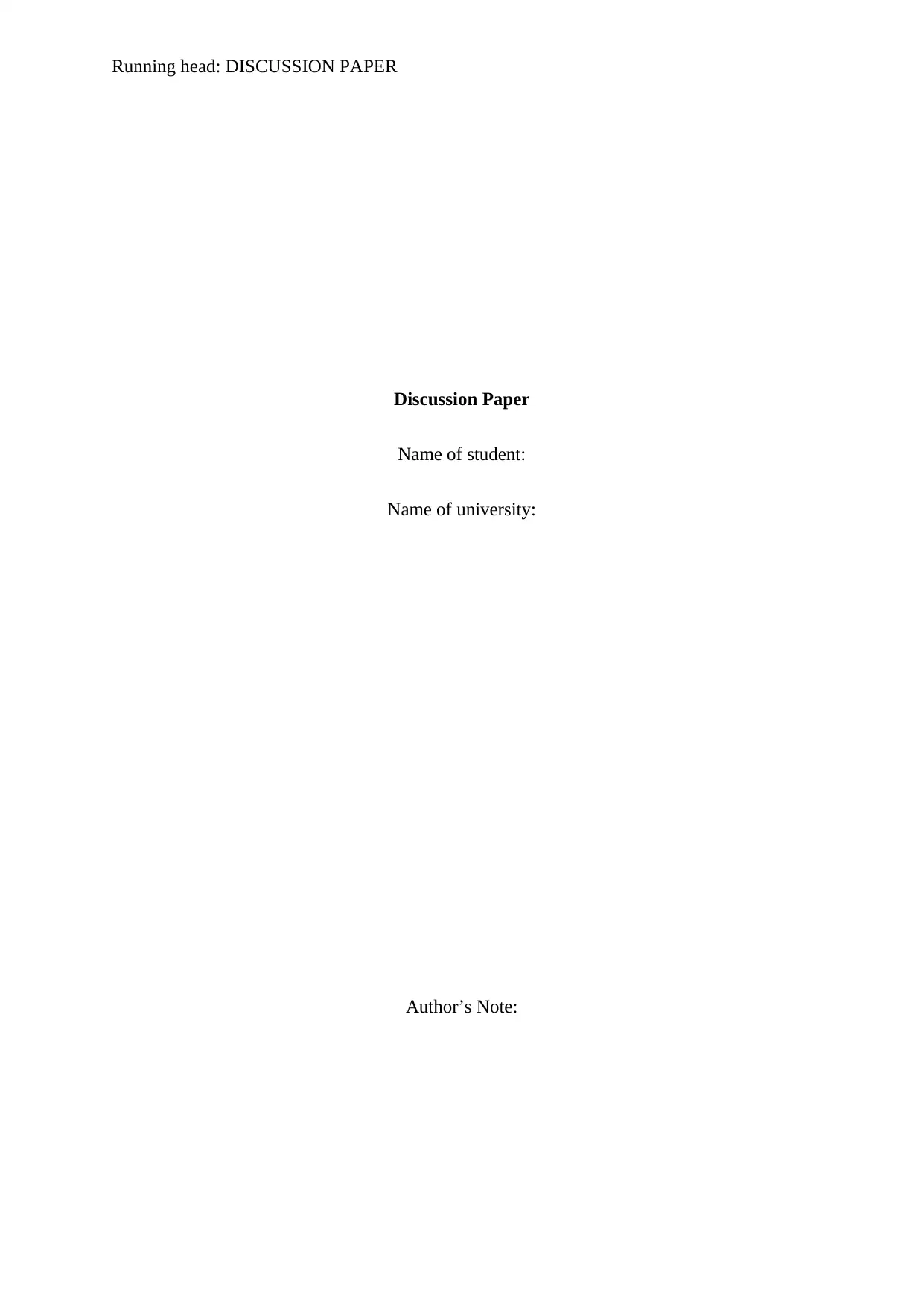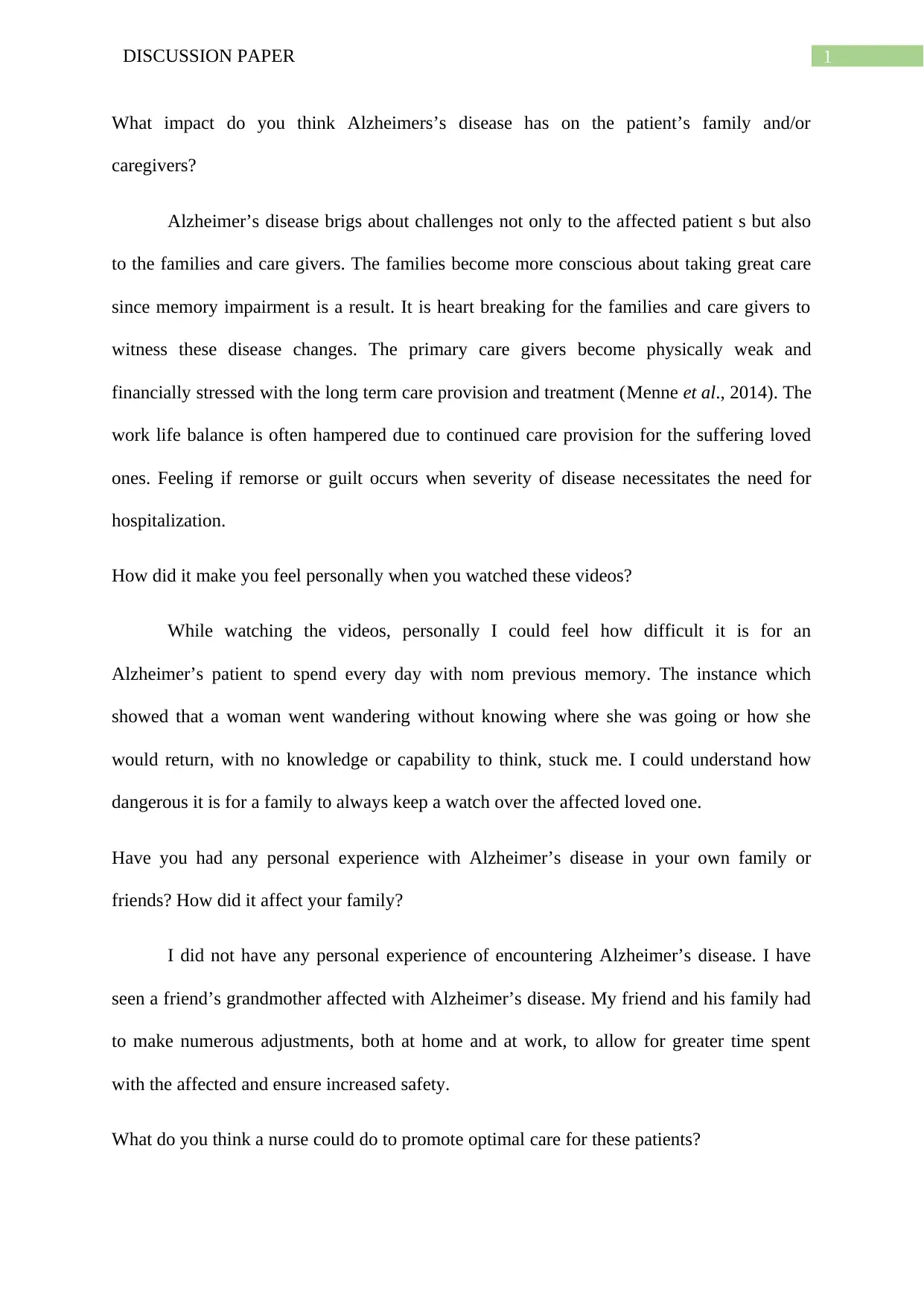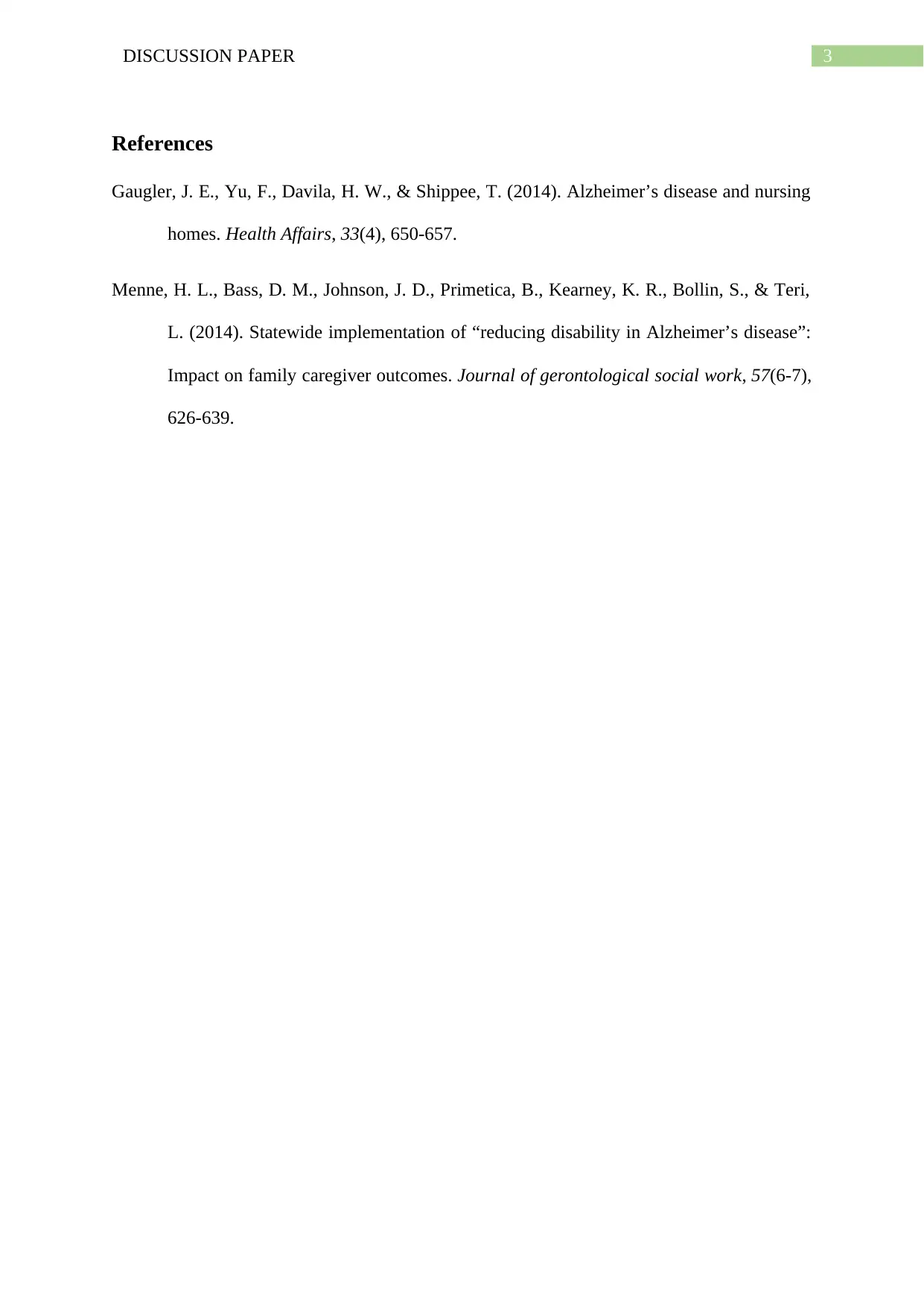Alzheimer's Disease: Family Impact, Personal Reflections and Care
VerifiedAdded on 2023/04/26
|4
|533
|255
Discussion Board Post
AI Summary
This discussion post delves into the multifaceted impact of Alzheimer's disease on patients, their families, and caregivers. It highlights the emotional and financial strain experienced by families, the challenges of balancing work and caregiving responsibilities, and the feelings of guilt that may arise when hospitalization becomes necessary. The author reflects on the emotional impact of witnessing the disease's progression and emphasizes the crucial role of nurses in promoting patient self-determination, establishing routines, and adapting care strategies to the evolving needs of individuals with Alzheimer's. The discussion also touches upon personal experiences with the disease, underscoring the significant adjustments families must make to ensure the safety and well-being of their loved ones. This assignment solution is available on Desklib, a platform offering a wide range of study resources, including past papers and solved assignments.
1 out of 4











![[object Object]](/_next/static/media/star-bottom.7253800d.svg)